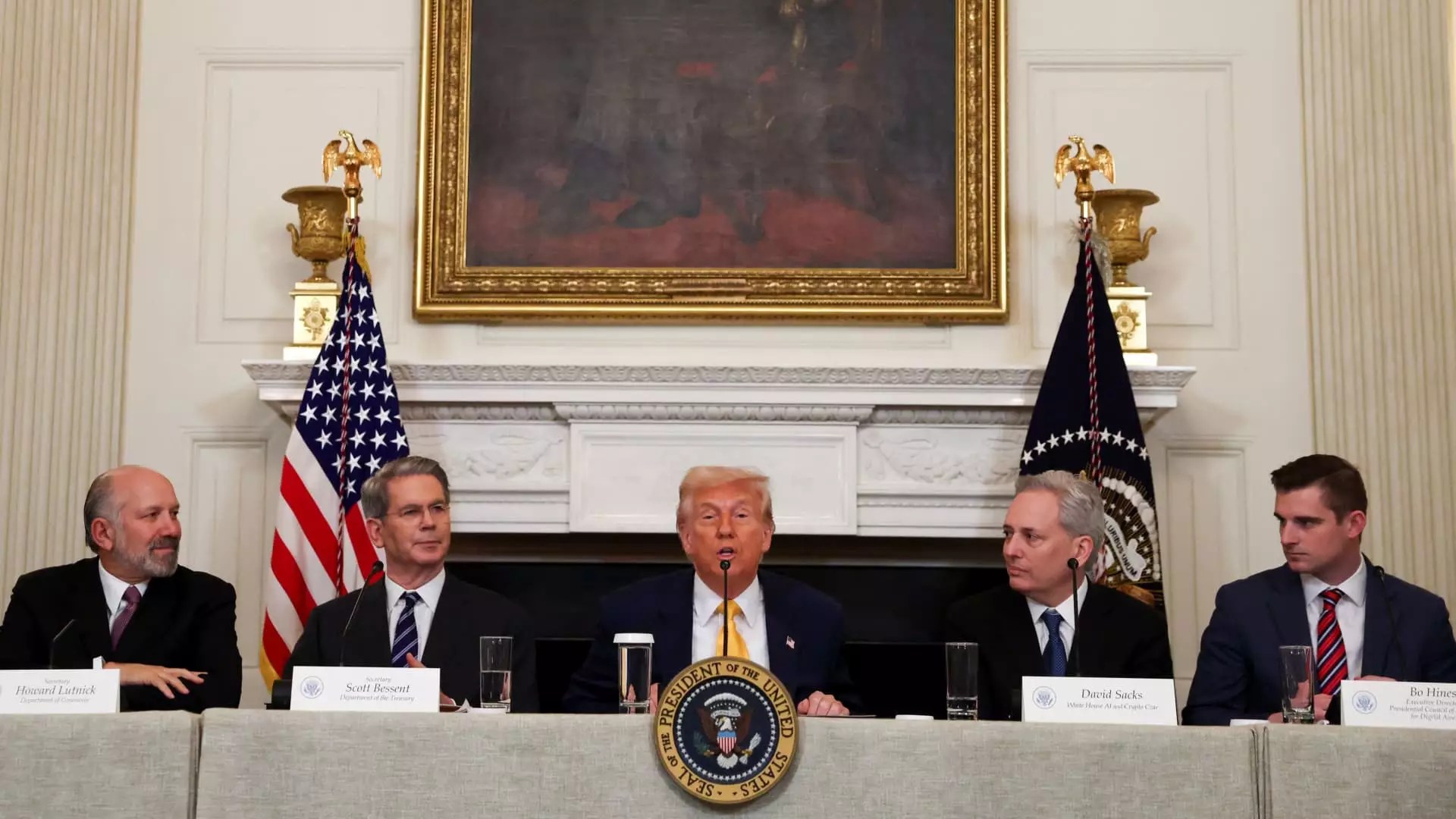Bo Hines’ rapid ascension in the world of American crypto policy is as remarkable as it is controversial. At just 29 years old, this former college football player turned lawyer has secured a significant position within the Trump administration’s agenda, despite lacking any professional background in cryptocurrency. While his athletic career at North Carolina State and recent legal education at Wake Forest may have instilled discipline and strategy, it’s perplexing how an individual with such limited industry experience can be entrusted with steering national economic policy toward the digital currency frontier.
As a center-right libertarian, I find it imperative to scrutinize Hines’ credentials. His dual congressional run failures only amplify questions regarding his political acumen and suitability for such a critical economic role. Shouldn’t we prioritize seasoned professionals who delve deeply into the complexities of cryptocurrencies and financial regulations rather than relying on unproven candidates with a celebrity appeal?
Embracing the Digital Gold Rush
Hines enthusiastically proclaims that initiatives are underway to position the United States as the “crypto capital of the planet.” But is such ambition grounded in reality? His enthusiastic rhetoric about ushering in a “golden age” for digital assets feels more like a marketing catchphrase than a well-thought-out policy approach. There’s an underlying concern: Without proper regulation and oversight, the desire for rapid growth in crypto markets risks turning into a chaotic environment that could leave investors vulnerable and potentially devastate the very economy Hines claims to protect.
His partnership with former venture capitalist David Sacks is telling; both seem charged with reshaping outdated regulations swiftly, but at what risk? Hines’ focus on dismantling alleged government restrictions on the crypto industry could backfire, leading to exploitative practices reminiscent of the so-called “Wild West” of finance. These unregulated environments can allow bad actors to thrive while genuine investors get fleeced. Are we prepared to risk our economic integrity in pursuit of crypto glory?
The Trump Connection: A Double-Edged Sword
Hines’ association with Donald Trump complicates his narrative. Backed by the former president’s endorsement—a stamp of uncertainty in itself—he is navigating a politically charged landscape rife with potential conflicts of interest. One cannot overlook Trump’s financial entanglements with cryptocurrencies, ranging from memecoins to digital collectibles. Hines’ assertion that this “American citizen” has the right to engage in digital markets provides a flimsy defense against legitimate concerns about ulterior motives that could compromise policy-making.
As Hines outlined ambitious ideas like creating a “Strategic Bitcoin Reserve” or scrapping outdated IRS rules, skepticism arises—key decisions are being made in the haze of political favoritism rather than sound economic reasoning. Hines’ full support for any promotions tied to the former president’s interests raises ethical questions that should alarm any serious advocate for fair digital asset policies.
A Cautious Eye Toward Regulation
Hines’ comments on stabilizing regulations appear optimistic yet dangerously oversimplified. His praise for SEC Commissioner Hester Peirce’s initiatives, along with a bipartisan Senate committee advancing stablecoin legislation, feeds into an overly rosy picture of crypto regulation. While true regulatory reform is essential for growth and consumer protection, the speed at which Hines and his cohort are attempting to disseminate regulations hints at a troubling willingness to sacrifice careful deliberation for rapid implementation.
For example, eluding the lessons learned in the traditionele financial sector can yield disastrous results. Do we really want to risk repeating past mistakes just to claim a leading role in the emerging crypto landscape? Smart regulations must not just facilitate growth but must ensure that emerging technologies serve the public interest without introducing systemic risks or equity concerns.
The Future of Cryptocurrency in America
As Hines embarks on this ambitious journey under the Trump administration, the future of cryptocurrency in America hangs precariously in the balance. The tension between innovation and the necessity for regulation raises significant questions about the administration’s overall direction. The idea of stablecoins possibly establishing U.S. dollar dominance is appealing, but the broader implications of these approaches remain murky.
To genuinely realize the promise of cryptocurrency, society must advocate for a multifaceted discourse that values both innovation and prudence. The challenge lies not just in defining policies but also in ensuring they are borne out of comprehensive expertise rather than a rush toward dubious triumphs. If we are to establish our nation as a frontrunner in digital currency, we must demand better than the fleeting impulses reflected in the actions of Bo Hines and his crypto policy initiatives.


Leave a Reply